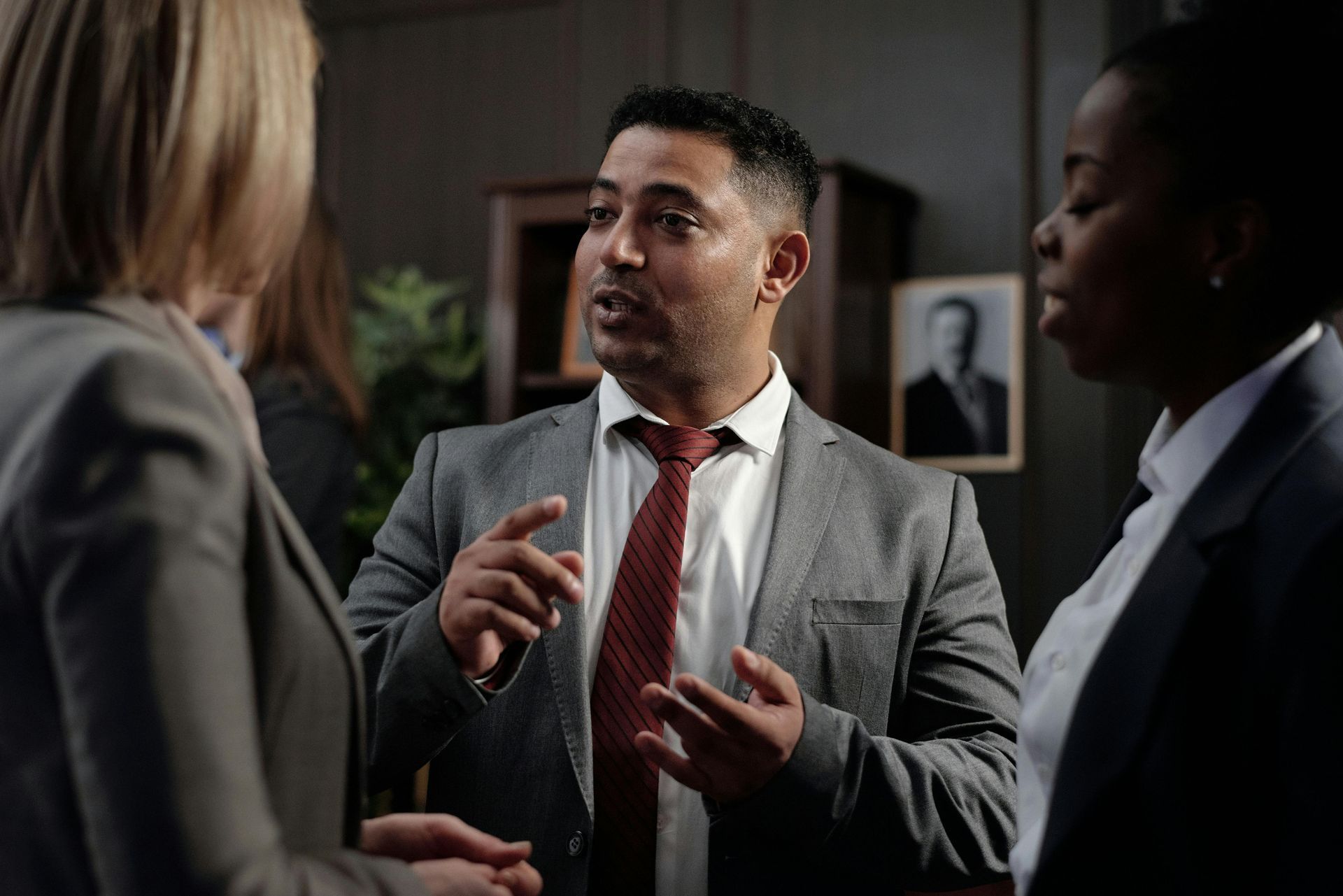Choosing Guardians for Your Minor Children: A Guide for Parents
As a parent, your children's well-being is your top priority. While no one wants to imagine a future where they're not there to care for their children, planning for such a possibility is one of the most important responsibilities you can undertake. Choosing guardians for your minor children is a crucial aspect of this planning, ensuring that your kids are raised by someone you trust and who shares your values. This decision is not one to be taken lightly, and this blog post will guide you through the process, highlighting the key considerations and how D.Rowe Law, with its experienced estate planning and tax lawyer Daniel Rowe, Esq., CPA, can provide invaluable assistance.
Why Choosing a Guardian is Essential:
If something were to happen to both parents, a court would decide who will care for your children. Without a designated guardian in your will, this decision rests solely with the court, which may not choose someone you would have selected. Choosing a guardian allows you to express your wishes clearly and gives your children the security of knowing who will care for them in your absence. It's a vital part of responsible parenting and provides peace of mind knowing your children's future is secure.
Factors to Consider When Choosing a Guardian:
Selecting a guardian is a deeply personal decision, and there's no one-size-fits-all answer. Here are some critical factors to consider:
- Relationship with Your Children: The guardian should have a positive and loving relationship with your children. They should be someone your children know and trust, making the transition smoother in a difficult time.
- Values and Parenting Style: Consider whether the potential guardian's values and parenting style align with your own. Look for someone who will raise your children with similar principles and beliefs.
- Lifestyle and Stability: Evaluate the guardian's lifestyle, including their living situation, financial stability, and family dynamics. Your children will be living with this person, so their environment is crucial.
- Location: Consider where the potential guardian lives. Would your children have to move far from their friends, school, and familiar surroundings? While not always the deciding factor, location can be an important consideration.
- Age and Health: Think about the potential guardian's age and health. Raising children is demanding, and you want someone with the energy and ability to do so.
- Willingness to Serve: Don't assume someone will be willing to take on the responsibility of guardianship. Have an open and honest conversation with them about your wishes and ensure they are comfortable with the commitment.
- Financial Stability: While you can provide for your children financially through your estate plan, the guardian's financial stability is still a factor. You want to ensure they can provide a comfortable home and meet your children's basic needs.
- Legal Guardianship vs. Custody: It's important to understand the difference between legal guardianship and custody. A guardian is responsible for the child's physical care and well-being, while custody refers to the legal right to make decisions about the child's upbringing. In most cases, the guardian will also have custody, but it's essential to clarify this in your estate plan.
Who to Choose as a Guardian:
There's no right or wrong answer when it comes to choosing a guardian. Some common choices include:
- Family Members: Grandparents, siblings, aunts, and uncles are often considered. They typically have a close relationship with the children and share similar values.
- Close Friends: Trusted friends who are like family can also be excellent guardians. They may share your values and have a strong bond with your children.
- Godparents: If your children have godparents, they may be a natural choice. They often play a significant role in your children's lives and are committed to their well-being.
What to Avoid When Choosing a Guardian:
- Choosing Someone Without Discussing It: Don't assume someone will be willing to take on the responsibility. Have a thorough conversation with them about your wishes and make sure they are comfortable with the commitment.
- Choosing Based on Guilt or Obligation: Don't feel pressured to choose someone you don't feel is the right fit. The most important consideration is your children's well-being.
- Choosing Someone Who Lives Far Away Without Considering the Impact: Moving can be traumatic for children, especially after the loss of their parents. Consider the impact of a move on your children's lives.
- Failing to Update Your Guardianship Designation: Life circumstances change. Review your guardianship designation periodically and update it as needed to reflect any changes in your family or the potential guardian's situation.
The Importance of a Will and Estate Plan:
Choosing a guardian is just one part of a comprehensive estate plan. Your will is the primary legal document that designates your chosen guardian. It's also essential to have other estate planning documents in place, such as:
- Power of Attorney: This document allows someone you trust to manage your financial affairs if you become incapacitated.
- Healthcare Directive: This document outlines your wishes for medical care if you are unable to make decisions for yourself.
How D.Rowe Law Can Help:
Daniel Rowe, Esq., CPA, the founder of D.Rowe Co., is one of Charlotte, North Carolina's most trusted and experienced estate planning and tax lawyers for families and small businesses. He can provide invaluable assistance in choosing a guardian for your children and creating a comprehensive estate plan that protects their future. Here's how D.Rowe Law can help:
- Guidance and Advice: Daniel Rowe can provide expert guidance and advice on choosing a guardian, considering all the relevant factors and helping you make an informed decision.
- Drafting Legal Documents: He can draft all the necessary legal documents, including your will, power of attorney, and healthcare directive, ensuring your wishes are clearly and legally documented.
- Estate Planning: He can help you develop a comprehensive estate plan that addresses all your needs and ensures your children's financial security.
- Tax Planning: As a CPA, Daniel Rowe can also advise you on the tax implications of your estate plan and help you minimize any tax burdens.
Choosing a guardian for your minor children is one of the most important decisions you will make as a parent. It's a way to ensure your children are cared for by someone you trust and who shares your values. By carefully considering the factors outlined in this blog post and working with an experienced estate planning attorney like Daniel Rowe at D.Rowe Law, you can have peace of mind knowing your children's future is secure. Don't delay this crucial step – contact D.Rowe Law today to begin planning for your children's future.






Financial Power of Attorney: Managing Your Affairs in Case of Incapacity and How D.Rowe Co. Can Help





